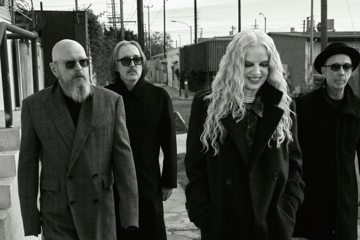New Study Shits On Calls To End Lockouts Just When Things Were Looking Up
You've got to be kidding.
The ongoing debate of lockout laws in Australia has been moving in a positive direction as of late, following last month's official review which encouraged some aspects of the legislation to be "relaxed", however a new study conducted out of Melbourne suggests that restrictions should be put in place throughout the country.
As Perth Now reports, a La Trobe University study, based on reviews of 21 studies including seven in Australia, concludes that the reduced levels of alcohol-related violence due to the lockouts should not be ignored.
"Increasing trading hours tends to result in higher rates of harm, while restricting trading hours tends to reduce harm,” a statement from the Public Health Research and Practice journal reads.
"The evidence of effectiveness is strong enough to consider restrictions on late-trading hours for bars and pubs as a key approach to reducing late-night violence in Australia."
The claims come on the back of findings that Newcastle and Sydney have had drops in assault of 37% and 30% respectively after 10pm, while in Norway, a one-hour change of trading hours for 18 bars resulted in a 16% change.
In contrast, a Canadian study found no impact on assaults in two Ontario cities which had a one-hour extension of trading hours.
The study comes just weeks after judge Ian Callinan suggested in his review that lockout laws be loosened up on a trial basis of two years, with venues' 1.30am last entry moved back to 2am and last drinks moved from 2.30am to 3am.
Anti-lockouts activist group Keep Sydney Open will stage another rally next weekend on the back of Callinan's review.
Speaking to theMusic in August, KSO spokesman Tyson Koh said the decision to make a handful of venues exempt from lockouts is "fantastic news".
"We always thought that the laws were quite unjust and they were certainly rushed through parliament, so there were bound to be a few mistakes in the composition of the legislation," he said.
Don't miss a beat with our FREE daily newsletter
"This gets a foot in the door for a lot of the other venues to potentially apply for exemptions too or maybe restructure their licenses so that these exemptions can apply to them."







